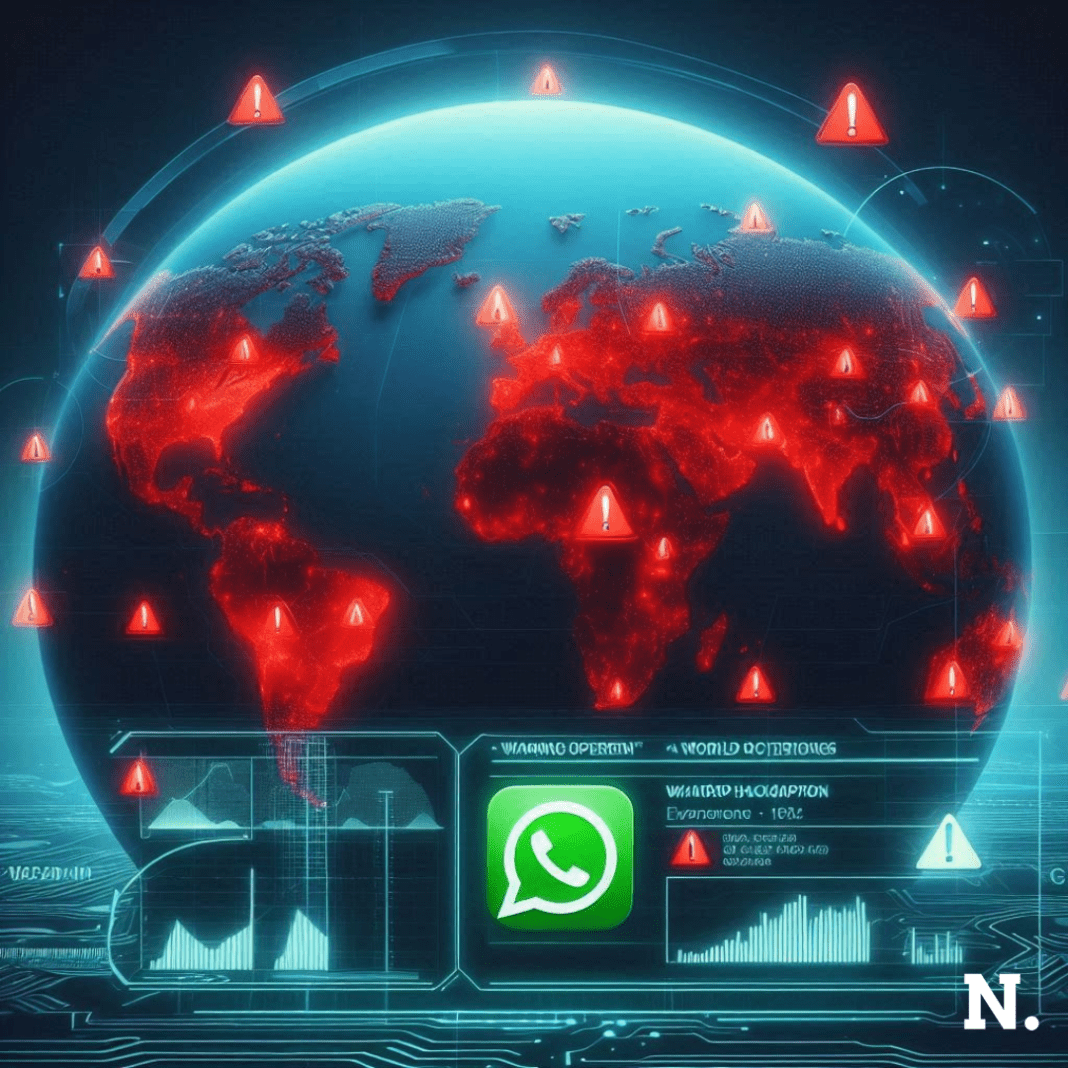WhatsApp Global Hacking Operation Exposed
A large-scale hacking operation targeting WhatsApp users has come to light, affecting people across 24 countries. Hackers targeted around 90 individuals, including journalists and members of civil society groups, in the cyberattack. They used advanced spyware to access personal data without any action from the victims.
The hackers used a method called a “zero-click” exploit, which means the spyware could enter a device without the user having to click on a link or download a file. The victims received malicious electronic documents, which, when opened, secretly installed the spyware. Once inside, the software could monitor conversations, steal data, and track user activity without detection.
WhatsApp, upon discovering the hacking attempt, took immediate action to disrupt the attack. The company sent a legal cease-and-desist letter to the spyware firm responsible and collaborated with cybersecurity experts to assist affected users. WhatsApp also informed law enforcement agencies and other technology companies to prevent further breaches. However, the full scale of the impact is still under investigation.
This incident once again raises concerns over digital security and privacy, as sophisticated spyware continues to be misused for unauthorized surveillance.
Spyware’s Dangerous Reach
Spyware is a type of malicious software that secretly collects information from a device. Many companies sell spyware to governments, claiming it will be used for national security, such as tracking criminals or terrorist activities. However, history shows that governments and other entities often use these tools to target journalists, activists, and political opposition members.
The spyware used in this WhatsApp attack had the ability to:
Spyware is a powerful and intrusive tool capable of extracting private messages from messaging apps, accessing emails, photos, and videos stored on a device, and tracking a user’s location and movements in real time. Beyond data collection, it can secretly activate the microphone and camera, allowing hackers to listen in on conversations and monitor activities without the user’s knowledge. What makes this spyware particularly dangerous is its ability to operate invisibly, leaving victims unaware that their devices have been compromised. This level of digital intrusion poses a serious threat to privacy and security, especially for individuals in sensitive positions such as journalists, activists, and government officials.
Over the years, cybersecurity experts have discovered spyware on the devices of high-profile figures, including government officials, diplomats, human rights defenders, and business executives. These discoveries have exposed how authorities and organizations misuse surveillance technology, often targeting those who challenge authority or work on sensitive matters. As these cases continue to surface, they have drawn increased scrutiny toward private firms that develop and sell spyware. Although these companies claim that they design their products for law enforcement and national security purposes, history demonstrates that people often misuse these tools for unauthorized surveillance.
The lack of strict regulations surrounding spyware development and distribution has made it easy for these tools to fall into the wrong hands. Governments and organizations worldwide have raised concerns over the ethical and legal implications of such unchecked surveillance. Many cybersecurity experts argue that authorities must enforce stronger oversight and accountability measures to prevent further privacy violations. Without proper regulation, hackers and organizations will continue exploiting spyware, posing significant risks to individuals and institutions alike.
Urgent Need for Cybersecurity Measures
In response to the attack, WhatsApp has been working closely with cybersecurity organizations to minimize damage and strengthen its security measures. The affected users have been notified about the breach and advised on how to secure their devices.
Cybersecurity experts have warned about the increasing risk of mercenary spyware—software developed by private companies and sold to government agencies. While governments and companies promote such tools as essential for law enforcement and national security, people often use them for purposes beyond their intended scope.
The discovery of this hacking operation has once again highlighted the urgent need for stronger digital security measures. Users are encouraged to take precautions such as:
- Regularly updating apps and operating systems to patch security flaws.
- Enabling two-step verification for added account protection.
- Avoiding unknown messages or links from unfamiliar contacts.
- Using encrypted messaging services that offer stronger privacy protections.
WhatsApp’s quick response helped disrupt this particular attack, but the incident serves as a reminder that spyware threats continue to evolve. As digital communication becomes an essential part of daily life, the risks of cyber surveillance also increase, making security awareness more important than ever.





